index
Systems and places
click on images for full-size:
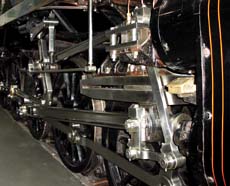
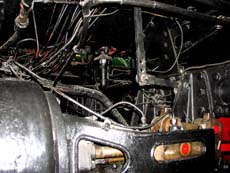
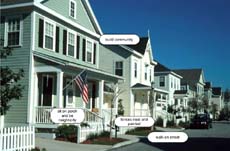
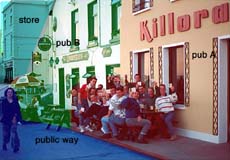
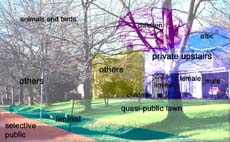

Mechanical connections and causal linkages

Mechanical connections and causal linkages

Normative connections

Normatively defined borders

Normatively defined and connected areas
A system is not a place. Causal systems are not the same as sets of norms. The efficiency of a system is not the ritual of a place. A functional role in a system is not of itself a social "we." Imagine an office building. It might later become an apartment house. Throughout such changes certain elements of the building do not change: the walls still support the roof, the windows still let in light in certain ways, and the heating system goes on as before. These elements, and others, make up what I called elsewhere the operative form of the building. (See Kolb 1990.) Operative form includes the physical systems that move air, resist gravity and wind, provide heat, and other tasks of this sort. The operative form is not the same as the functional unity of the building, which is more subject to change. The function of the building sets goals, while operative form concerns the organization of causal interactions as means to those goals. The operative form is how the means work, even if the goals change. The operative form of a building may have very little influence on its experienced form. For instance, a building could be supported by steel beams but given the look of being supported by stone pillars. These two kinds of unity can change independently of one another. We can change the operative form by replacing the heating system, without changing the purpose of the building or the norms of the place. On the other hand, we can develop the building into new kind of place without altering the way its roof is supported. Following the analogy of the individual building, make a similar distinction with regard to places, between operative causal effects and normative issues of meaning. So, distinguish system and place. In what I am calling a system, events in one location have effects in another, and these causal links are not intentional or normative. If I make this window larger I may weaken the wall and cause the ceiling to collapse. If I attach this air conditioner I may overload the electric wiring. If the bank in Boston puts money into this housing development it will have to reduce its investment in that proposed shopping center. If you run that smelter, these cities a thousand miles downwind will have increased air pollution. Such links are causal, not grammatical. Their conflicts are of a different nature. They happen whether or not we intend them to happen and no change in the social norms for the places involved can by itself keep them from happening. System effects on our places and social grammars may be very profound and widespread. But many critiques of contemporary places confuse widespread effects with the creation of a universal homogenous place. [Objection!]